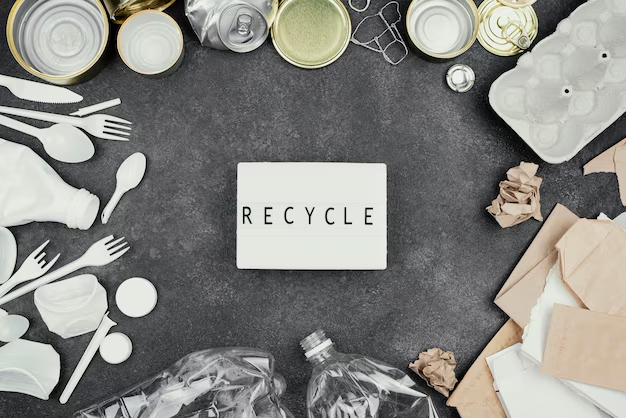How to Responsibly Dispose of Your Old Refrigerator
Finding yourself with an old refrigerator that needs replacing can stir up a mix of emotions. On one hand, there's the excitement of having a new appliance; on the other hand, the realization that you're responsible for disposing of the old one can be daunting. While it might feel overwhelming at first, the good news is that there are several avenues for getting rid of your old fridge in a manner that's both responsible and environmentally friendly. Let’s explore various options available for you to make the process seamless and satisfying.
Understanding the Importance of Proper Disposal
Before diving into the where, it’s crucial to understand the why. Refrigerators are complex appliances that require careful disposal because they often contain substances harmful to the environment. Refrigerants and foams, if not properly managed, can release greenhouse gases and contribute to ozone layer depletion. Therefore, inappropriate disposal can have significant environmental implications.
Environmental and Health Impacts
- Harmful Chemicals: Most refrigerators use refrigerants such as chlorofluorocarbon (CFC) or hydrofluorocarbon (HFC), which must be properly recovered and treated.
- Metals and Plastics: The casing and internal components contain metals and plastics that can be recycled and repurposed, reducing waste.
Legal Regulations
There are regulations at both local and national levels mandating how old refrigerators should be processed. Understanding these laws ensures compliance and averts penalties.
Options for Refrigerator Disposal
Now that you grasp the importance, let's examine the various options you have for disposing of your refrigerator.
Retailer Take-Back Programs
Many appliance retailers offer take-back programs when you purchase a new refrigerator. This option is often the easiest and most convenient. Retailers might include:
- Free disposal service as part of your delivery fee.
- A small fee for taking away the old unit.
- Rebates or discounts on your new appliance purchase in exchange for your old fridge.
Municipal Waste Management Services
Most cities provide bulk waste collection services:
- Check with your local waste management agency for schedules and any special requirements or fees.
- Certain municipalities may require you to remove doors or take specific preparation steps for safety and compliance.
Recycling Centers
Dedicated appliance recycling centers are equipped to handle the safe disposal of old refrigerators:
- These facilities ensure proper removal of refrigerants and the recycling of metals and plastics.
- Fees may apply, but they offer a sustainable option to prevent hazardous chemicals from reaching the environment.
Donation or Selling
If your refrigerator is still in working order, consider these more sustainable options:
Donation
- Non-profit organizations and community centers often accept working appliances for families in need.
- Ensure the model meets any donation criteria, such as energy efficiency standards.
Selling
- Online marketplaces or garage sales can be venues to sell a working fridge at a reasonable price.
- Remember: Ensure transparency about the appliance’s condition.
Professional Junk Removal Services
For those who prefer a hassle-free experience, professional junk removal services can be a practical choice:
- They handle all aspects of removal.
- Often ensure responsible disposal or donation pathways.
Step-by-Step Guide to Refrigerator Disposal
- Plan Ahead: Determine how you will dispose of your refrigerator before purchasing a new one.
- Research Options: Evaluate which method—retailer programs, municipal services, recycling centers, donation, selling, or junk removal—fits your needs.
- Prepare the Appliance:
- Unplug and fully defrost the fridge.
- Secure or remove loose items or shelves inside.
- For safety, secure or remove the doors to prevent accidents.
- Arrange Pick-Up or Drop-Off: Coordinate with your chosen method provider, ensuring you comply with all requirements.
Common Mistakes to Avoid
- Illegal Dumping: Never abandon your refrigerator in unauthorized areas. This can result in fines and other legal repercussions.
- DIY Refrigerant Removal: Do not attempt to remove refrigerants yourself. It’s dangerous and illegal without proper certification and equipment.
- Neglecting Doors: Safety hazards arise if the doors are not secured or removed, posing risks to animals and children.
Summary of Disposal Options 🗂️
| Option | Pros | Cons |
|---|---|---|
| Retailer Take-Back | Convenient; often included in delivery service | May not apply if not purchasing a new appliance |
| Municipal Services | Cost-effective; supports local recycling | Scheduled pickups may limit flexibility |
| Recycling Centers | Environmentally friendly | Requires transport; possible fees |
| Donation or Selling | Supports others; may result in some financial gain | Limited to working appliances in good condition |
| Junk Removal Services | Stress-free; professional service | Service fees; relies on external processing methods |
These avenues represent realistic and effective ways to ensure your old refrigerator is handled with care for the environment and the wider community.
Final Word on Responsible Refrigerator Disposal
The disposal of an old refrigerator doesn’t have to be a chore. With multiple options tailored to varying needs and conditions, you can choose a path that aligns with your values and logistical requirements. Whether opting for a professional service or passing on a usable appliance to someone in need, the key is to prioritize safe and environmentally sound practices. As with many aspects of modern life, responsibility and awareness are your best guides.

